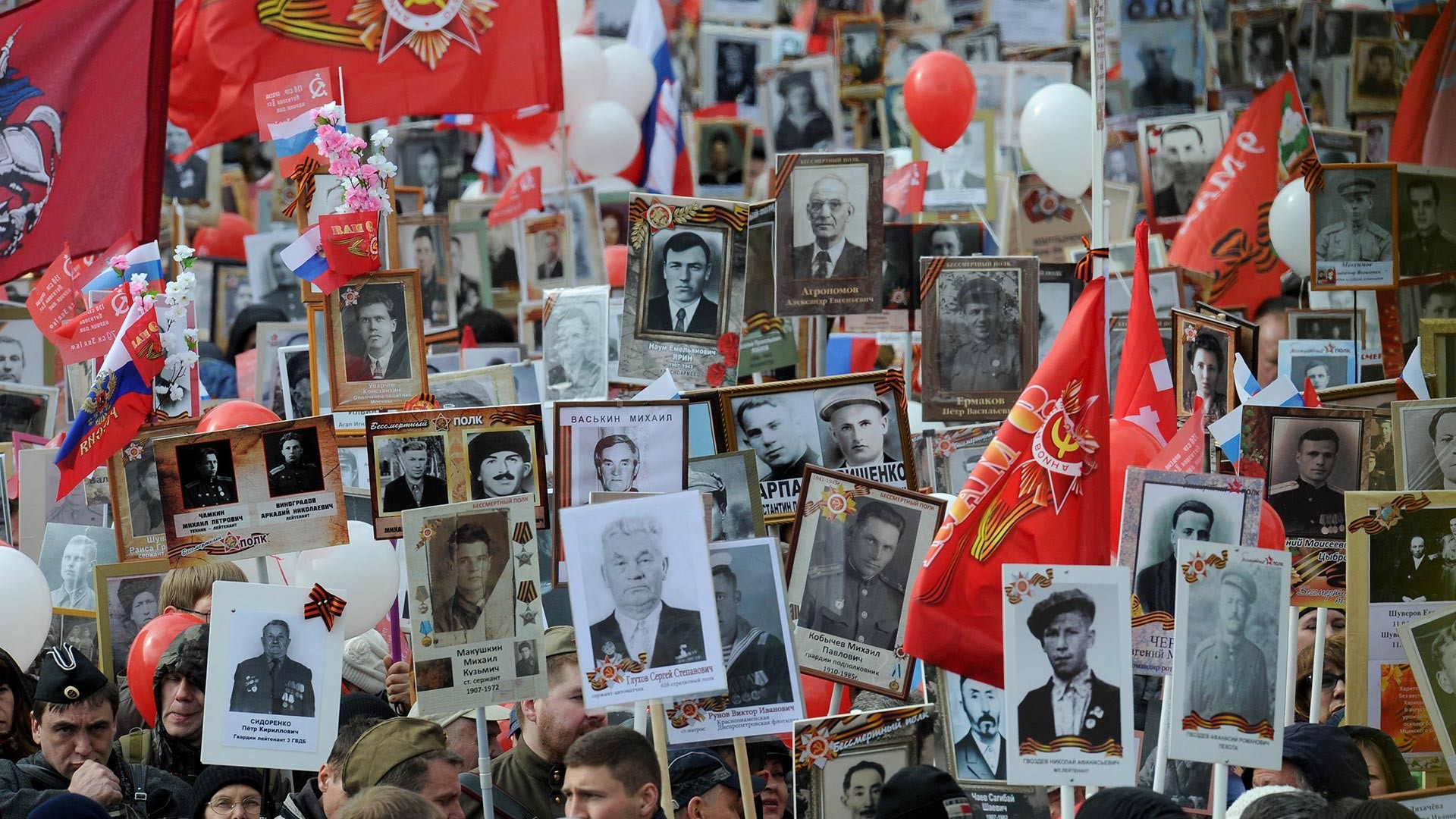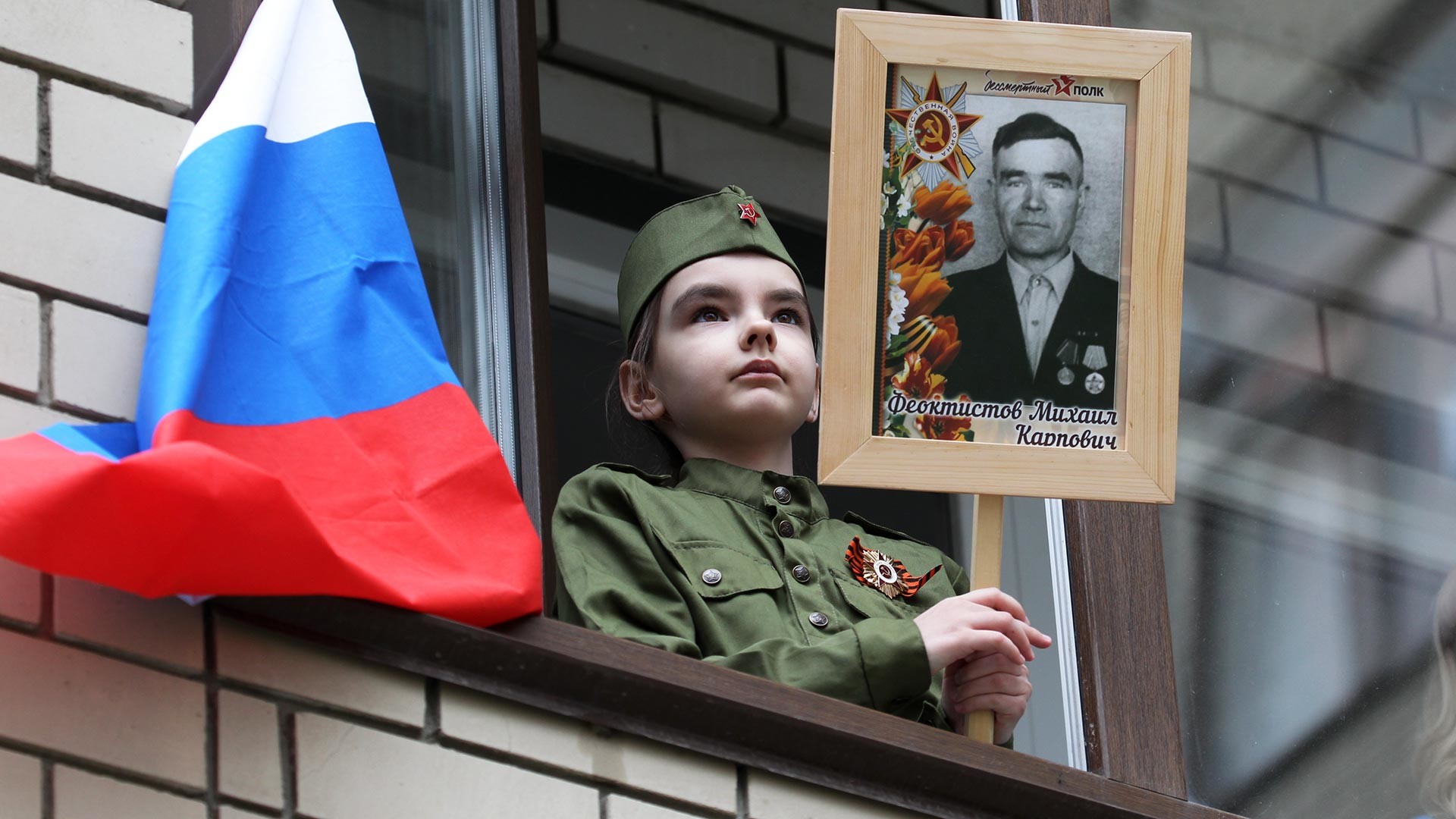
The coronavirus outbreak in Russia means that the annual Immortal Regiment procession — during which people hold up portraits of relatives who fought in the Great Patriotic War — has been canceled. At least physically. Instead, the organizers came up a way to host the event online, and now anyone can join in anywhere in the world.
To take part, you simply have to fill out a form with information about your veteran relative(s), and add photos of you and them on the official project website or social media pages.
All the photos will then be turned into a single video sequence to be shown on TV channels, media screens, and various Internet sites. The broadcast will begin on May 9 at 2am Moscow time.

In addition, that same day at 7pm Moscow time, Russians will go out onto their balconies with pictures of war heroes and sing the song “Victory Day”.
You too can honor the memory of a hero or relative who fought during the Great Patriotic War by submitting an application through the following sites:
https://ok.ru/app/immortal-
You can still apply even if you have no photo of a veteran. Nor is their date of birth and death or relationship to you required. During past processions, many people carried portraits not only of loved ones, but of famous war heroes, such as Marshal Georgy Zhukov. Some even held aloft portraits of Joseph Stalin, who led the USSR during the war.
Russians are also invited to use social networks to talk about the heroic deeds of family members in the Great Patriotic War, hashtagging keywords in their posts.
If using any of Russia Beyond's content, partly or in full, always provide an active hyperlink to the original material.
Subscribe
to our newsletter!
Get the week's best stories straight to your inbox